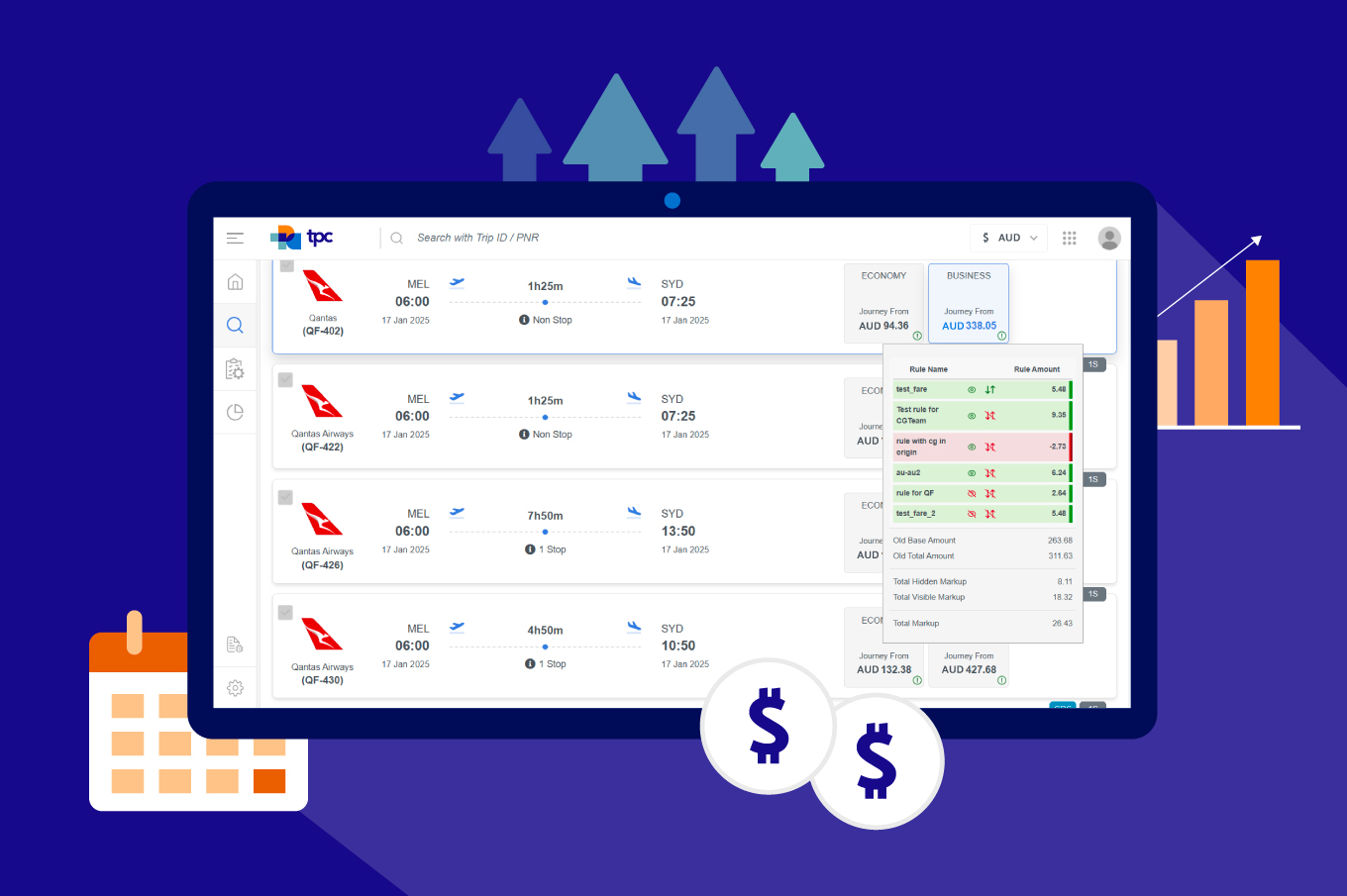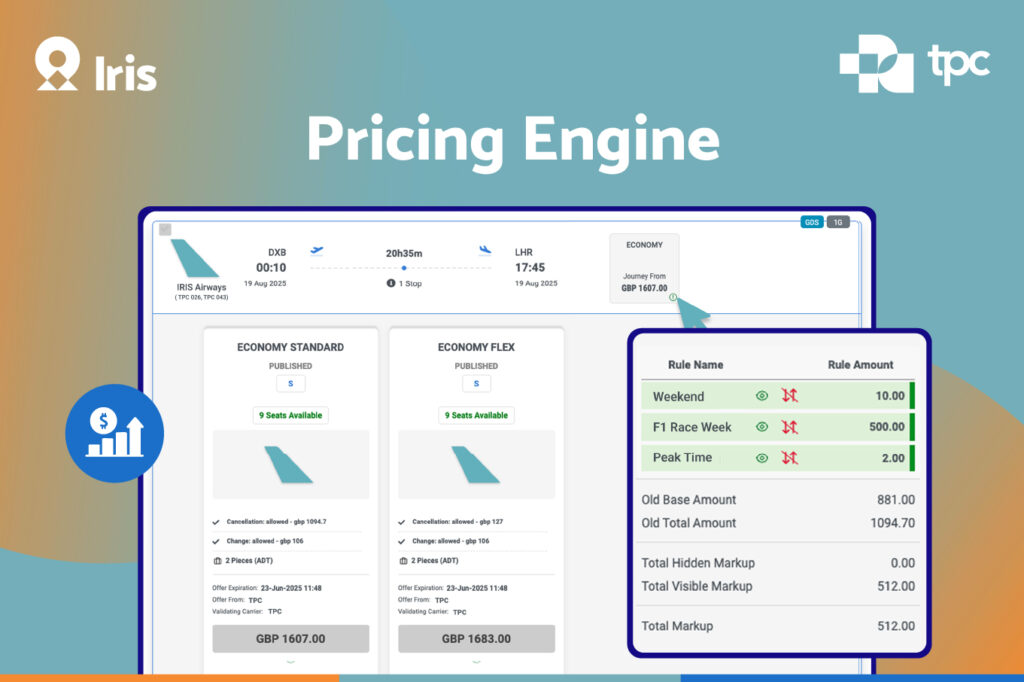In an era where the post-pandemic travel surge is cooling, forward-thinking travel sellers are adapting their strategies to maintain their competitive edge. The key to success? Sophisticated dynamic pricing that balances revenue optimization with customer value.
Understanding Dynamic Pricing in Travel
Dynamic pricing has evolved beyond simple price adjustments—it’s now a sophisticated strategy that responds to market dynamics in real-time. This approach creates a win-win scenario for both travelers and sellers. Travelers can discover personalized deals that align perfectly with their preferences and budget, while those with flexible schedules can capitalize on significant savings during off-peak periods. For sellers, this system enables precise targeting of promotions during peak customer interest, ensuring they maintain profitability while delivering competitive value.
What Drives Airline Ticket Pricing?
The ecosystem of airline pricing is influenced by a complex interplay of factors.
- Demand and Supply: Peak travel periods naturally command premium prices, while slower periods often yield better deals
- Booking Windows: The sweet spot for optimal pricing typically lies between booking too early or too late
- Competitive Landscape: Airlines continuously adjust prices in response to competitor movements
- Inventory Management: As seats fill up, prices typically trend upward
- Seasonal Patterns: Holiday and peak season pricing reflects heightened demand
- Route Dynamics: Popular routes experience more price fluctuation than less-traveled paths
- External Influences: Global events, from natural disasters to political changes, can impact pricing
- Operational Considerations: Fuel costs, labor expenses, and maintenance needs factor into pricing decisions
Revenge Travel Fades – What’s Next for Revenue Growth?
The era of revenge travel—characterized by pent-up wanderlust and post-pandemic splurges—is showing signs of maturation. While this shift presents new challenges for travel sellers, it also unveils opportunities for more sophisticated revenue strategies. The industry is transitioning from riding the wave of universal demand to crafting targeted approaches for specific market opportunities.
From Blanket Demand to Strategic Growth
The initial post-pandemic surge that drove unprecedented leisure travel is naturally cooling. However, this evolution doesn’t signal a downturn—rather, it marks a shift toward more nuanced demand patterns. Major sporting events and cultural gatherings have emerged as powerful catalysts for travel spending, demonstrating how specific events can create concentrated periods of exceptional demand.
The FIFA World Cup 2022 serves as a compelling case study of this phenomenon. The tournament triggered an extraordinary surge in regional air travel, with Qatar Airways orchestrating approximately 14,000 flights to transport over 1.4 million passengers during the event period. The impact extended beyond Qatar’s borders, with flight bookings from the UAE and nine other countries increasing tenfold compared to pre-pandemic levels. Dubai-based carrier Flydubai exemplified the financial potential of such events, recording a remarkable 43% profit increase to 1.2 billion dirhams ($327 million), significantly driven by World Cup-related travel.
Travel sellers who can identify and capitalize on these focused opportunities—whether they’re sporting events, cultural festivals, or business conferences—stand to capture substantial value.
Success in this evolving landscape requires a shift from passive order-taking to proactive opportunity maximization. The key lies in developing sophisticated pricing and capacity management strategies that can respond dynamically to these demand patterns. Travel sellers must move beyond traditional approaches to implement systems that can identify, predict, and capitalize on both broad market trends and specific event-driven opportunities.
Breaking Free from Legacy Constraints
Traditional travel retailing systems impose significant limitations that hinder modern pricing strategies. These legacy systems restrict pricing flexibility through static markup structures and offer limited ability to respond to real-time market signals. They also constrain sellers’ capacity to target high-value segments and optimize ancillary revenue streams, ultimately limiting the potential for effective revenue management.
The Power of Fine-Grained Dynamic Pricing Control
Imagine setting granular pricing controls across every element of an airline booking. This is why a growing number of sellers are adopting modern retailing platforms that allow them to:
- Apply pricing rules based on any booking parameter: Align price points with demand forecasting models to maximize bookings all under seller control. Enable tailored promotions across dates, times, booking class and more.
- Optimize margin by supplier: Make the most of profit margins across various suppliers (GDS, NDC, LCCs and aggregators).
- Add margins to servicing fees: Generate ancillary revenue from exchanges, cancellations, and other services.
With robust pricing capabilities, sellers can adjust strategies quickly in response to market conditions.
The Iris Advantage: Next-Generation Pricing Engine
Iris empowers travel sellers with increased pricing precision through an integrated suite of capabilities.
Core Capabilities
- Rule-based pricing driven by any booking parameter
- Supplier-specific margin optimization
- Ancillary revenue generation from service fees
- Automated markup management
Key Features of Iris’ Pricing Engine
1. Customizable Pricing Rules: Our engine enables sellers to create and manage pricing rules based on a wide range of factors, including:
- Organization ID (POS)
- Route
- Journey type
- Supplier
- Validating carrier
- RBD code
2. Hierarchical Pricing Structure: The engine supports a multi-level hierarchy, allowing for granular control over pricing at various organizational levels:
- Country
- Brand
- Team
- Sub Agent
3. Flexible Rule Application: Pricing rules can be applied to:
- Prime bookings
- Re-shop bookings
- Both prime and re-shop bookings
4. Advanced Criteria Setting: Sellers can set detailed criteria for rule application, including:
- Airline variables (cabin class, account code, fare basis code, etc.)
- Travel dates and times
- Journey types
- Departure and arrival details
5. Markup and Discount Options: The engine supports both percentage-based and fixed amount pricing adjustments, with options for visibility control and min-max rule application.
6. Comprehensive Reporting: Sellers can easily view, update, duplicate, and track the history of pricing rules through our intuitive interface.
Strategic Impact





Gain greater control over pricing strategies across different markets and customer segments.
Streamline pricing management with our user-friendly interface and automated rule application.
Optimize revenue and profit margins through strategic pricing adjustments.
Respond quickly to market changes and competitor pricing with easily adjustable rules.
Leverage comprehensive reporting tools to inform strategic pricing decisions.
Embracing the Future of Travel Retail
As the travel industry continues to evolve, static pricing approaches have become obsolete. Iris transforms pricing from a constraint into a strategic advantage, enabling travel sellers to respond instantly to market shifts while delivering personalized value to customers. This comprehensive approach maximizes revenue opportunities while maintaining competitive positioning in an increasingly complex market.
View the Iris Pricing Engine video
Our comprehensive demo video walks you through the platform’s intuitive interface and powerful features. You’ll witness firsthand how easily pricing rules can be configured, observe the real-time application of dynamic pricing strategies, and see how the system handles various scenarios travel sellers encounter daily.
Take Action Now
Ready to elevate your travel business? Iris can revolutionize your pricing strategy while maintaining focus on customer value. Our plug-and-play solution eliminates complex setup requirements, allowing you to focus on what matters most: growing your business. Contact us today for a personalized demonstration of the Iris Pricing Engine.



